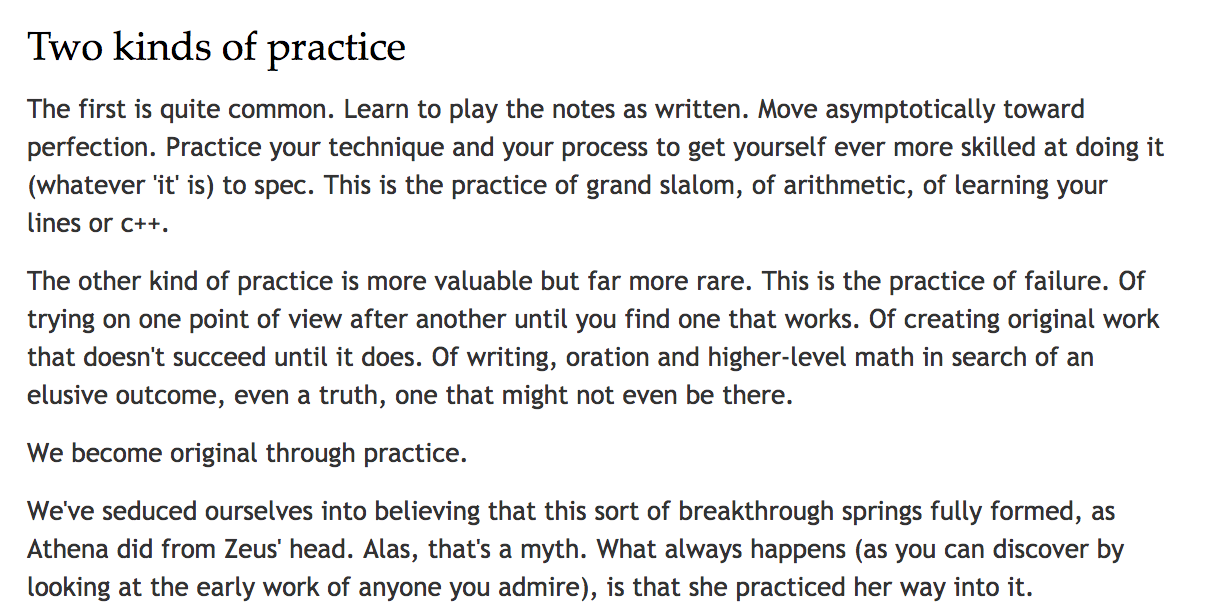Recently, Seth Godin wrote about the two types of practice.
If you haven’t read his post yet, here’s your chance:
Seth Godin’s reminder that not all experts, masters, or highly-qualified people were born that way is encouraging.
We develop expertise through practice and lots of it.
And as learners of the world, we should seek to understand the types of practice, so that we may know which one to call upon and when.
Consider this my attempt to round out the discussion of “types of practice.”
First, Seth’s two types of practices as I understood them below:
- Rote practice: Simple memorization to be able to regurgitate with or without emotion when the time calls. Examples include memorizing of facts, lines for a theatre play, or chords on a guitar.
- Expert practice:Â Seth Godin doesn’t call it this in his article. Expert practice is when a person surpasses traditional memorization and can evaluate and apply findings to make something new. They’re practicing their new political opinion or a new guitar riff they’ve developed.
And secondly, I’d like to include a new type of practice to this list – deliberate practice.
Deliberate practice is the bridge squeaked in between the two pillars of practice mentioned above. Its the bridge which helps a person make the cognitive leap from excelling with practice type one discussed above to learning and excelling with practice type two.
While I might call it a bridge to make my point clear, it truly deserves to be considered a pillar of practice too. Still placed between the two types of practice above, yet now complete with a definition, examples, and all.
2. Deliberate practice is a form of taking “rote practice” to the next level.
It puts an intentional spotlight on errors or mistakes uncovered while practicing, making the person aware of them and encouraging them to address them in their work moving forward.
It’s like forgetting the same line over and over in a theatre play. With deliberate practice, you’d notice that you perpetually forget this line, and so as you approach it, you slow down and focus on remembering it. After a few times with deliberate practice, you’d be more likely to remember the line than if you weren’t conscious of it. Another example is when practicing a Led Zeppelin guitar riff over and over, but when you approach a section where you tend to jumble the finger-work, you slow down and focus heavily on getting it right.
All too often we consider practicing the vague act of doing, without any critical thinking. Deliberate practice encourages mastery by bringing awareness and mindfulness to the forefront of training ,and then enacting a plan to improve.
Next time you sit down to practice something – whether an instrument, writing, painting, singing, or anything else you want to master – consider which level of practice you may need to exercise and when.